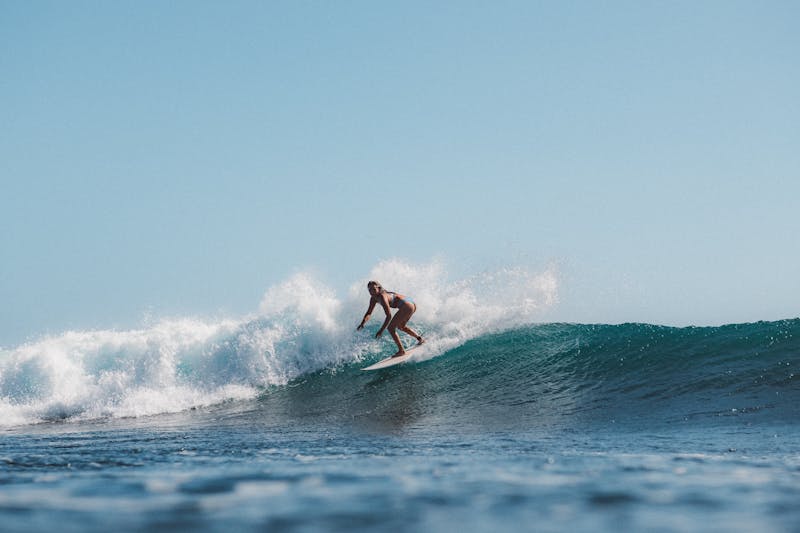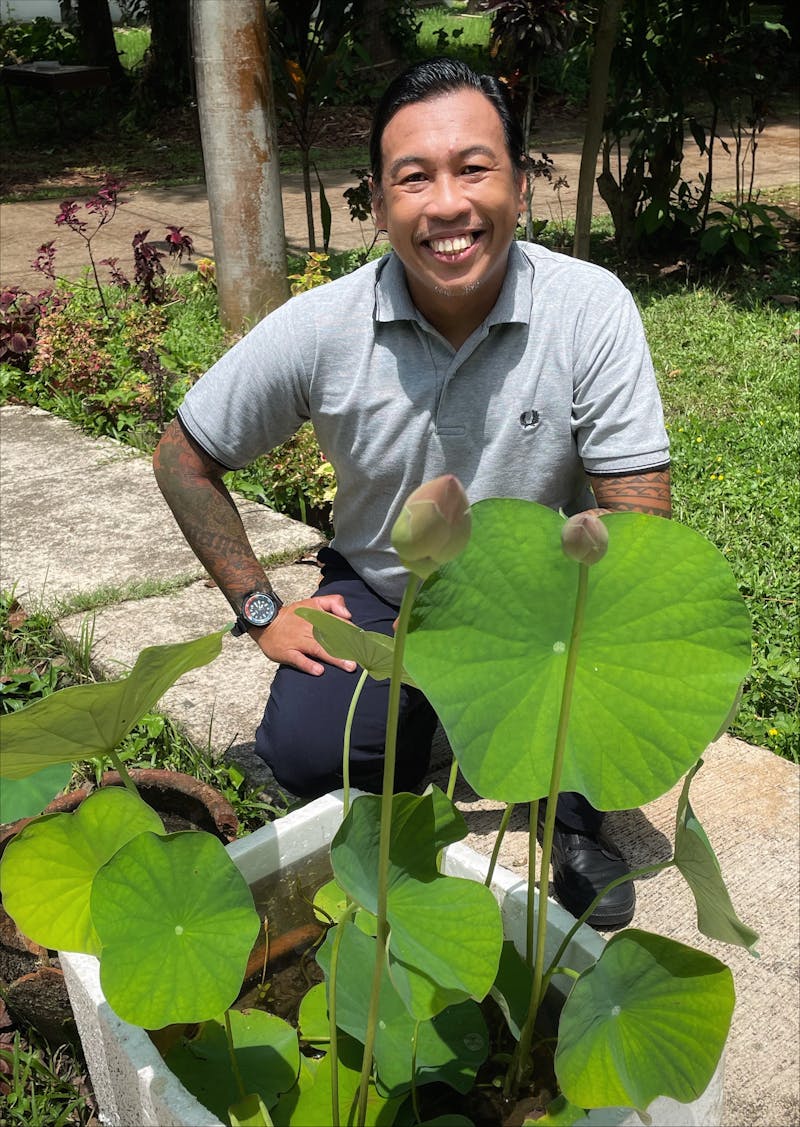
Student FREE Bookstore (CLICK HERE)
Five experts tell us how hope motivates their work
INTROCUCTION:
Yes, it’s easy to feel despondent. The planet is overheating and nature is declining at unprecedented rates.
But environmental chaos is not inevitable. And doom and gloom never did any good. Increasingly, thought leaders are urging optimism — and a clear-eyed focus on solutions that are well within reach.
Around the world, people are working to confront climate change and biodiversity loss by protecting nature. Meet five Conservation International experts who share why they have hope for our Earth — and why you should, too.
QUESTION: ASK ME ONE QUESTION ABOUT THE CONTENT IN THIS PARAGRAPH:
WRITING: WRITE A SHORT SUMMARY OF THE INFORMAION IN THIS PARAGRAPH:

Marissa Miller surfing on the South Shore of O’ahu, Hawai’i. Yoshi Tanaka
Surfing brings me hope because it grounds me in purpose and connects me to the ocean — and to people all over the world. Through surfing, I’ve developed a strong relationship with nature and become more attuned to my environment. My passion
for surfing goes beyond my love for riding waves because surfing relies on healthy coastal ecosystems, and healthy coastal ecosystems create many benefits for local communities. For me, surfing illuminates the interconnectedness between people and
our environment, making every surf session a reminder of why I do what I do at Conservation International. Those special moments — when I am floating out on the water, dancing across waves and connecting with the ocean — are a reminder
of what I strive to protect.
QUESTION: ASK ME ONE QUESTION ABOUT THE CONTENT IN THIS PARAGRAPH:
WRITING: WRITE A SHORT SUMMARY OF THE INFORMAION IN THIS PARAGRAPH:
SECTION ONE:

Daniela Amico with Margarita Cumbia, a member of the Awajun Indigenous group, at a workshop in the Peruvian Amazon. Marlon del Águila
I’m inspired by the Indigenous women of the Amazon, who despite all adversity stand taller and raise their voices louder every day. In the Amazon, almost every woman is also a mother — they want the best for their families and are working
hard to restore the nature that provides their medicine, food, water and connections to their cultural heritage. It is not easy when your voice is silenced. Studies show that Indigenous women face high levels of domestic violence and other abuse. Yet they find
ways to speak up, to participate and make decisions that are changing their communities for the better. I see that energy in their faces every time I visit them and it gives me hope.
QUESTION: ASK ME ONE QUESTION ABOUT THE CONTENT IN THIS PARAGRAPH:
WRITING: WRITE A SHORT SUMMARY OF THE INFORMAION IN THIS PARAGRAPH:
SECTION TWO:

Anna Haw in Kenya’s Maasai Mara. Courtesy of Anna Haw
I’m hopeful about the movement toward embracing new metrics of prosperity that consider the value of nature. For too long, economies have valued consumption and production at the expense of the environment. But now, more and more, the value of nature
— from providing clean air and water, to sustaining healthy food systems — is being brought into national agendas. I love that through Conservation International’s science, field projects and collaborations we are finding ways to
build economies that focus on the well-being of people and nature to ensure a prosperous, healthy future for generations to come.
QUESTION: ASK ME ONE QUESTION ABOUT THE CONTENT IN THIS PARAGRAPH:
WRITING: WRITE A SHORT SUMMARY OF THE INFORMAION IN THIS PARAGRAPH:
SECTION THREE:

Wilson John Barbon planted his lotus during the pandemic lockdown. Courtesy of Wilson John Barbon
The lotus I planted in my garden gives me hope. Out of the mud comes beauty, that’s the message of the lotus bloom. I draw inspiration from that idea in my work with communities thar are confronted with the effects of climate change, ecosystem loss,
and extreme poverty and food insecurity. With the right tools, important local solutions can emerge from working closely with communities. Hope can bloom, despite the challenges.
QUESTION: ASK ME ONE QUESTION ABOUT THE CONTENT IN THIS PARAGRAPH:
WRITING: WRITE A SHORT SUMMARY OF THE INFORMAION IN THIS PARAGRAPH:
SECTION FOUR:

Andrea Vasquez hiking in Heredia, Costa Rica. Courtesy of Andrea Vasquez
Science brings me hope. The challenges the world faces are urgent; we can’t improvise. Science gives me the assurance that we’re using the best available information to make conservation decisions on which our well-being depends. And you know
what else we need to be effective? Diverse and inclusive teams. It gives me hope that we are advancing our diversity, equity and inclusion strategy to implement more durable conservation solutions.
QUESTION: ASK ME ONE QUESTION ABOUT THE CONTENT IN THIS PARAGRAPH:
WRITING: WRITE A SHORT SUMMARY OF THE INFORMAION IN THIS PARAGRAPH
